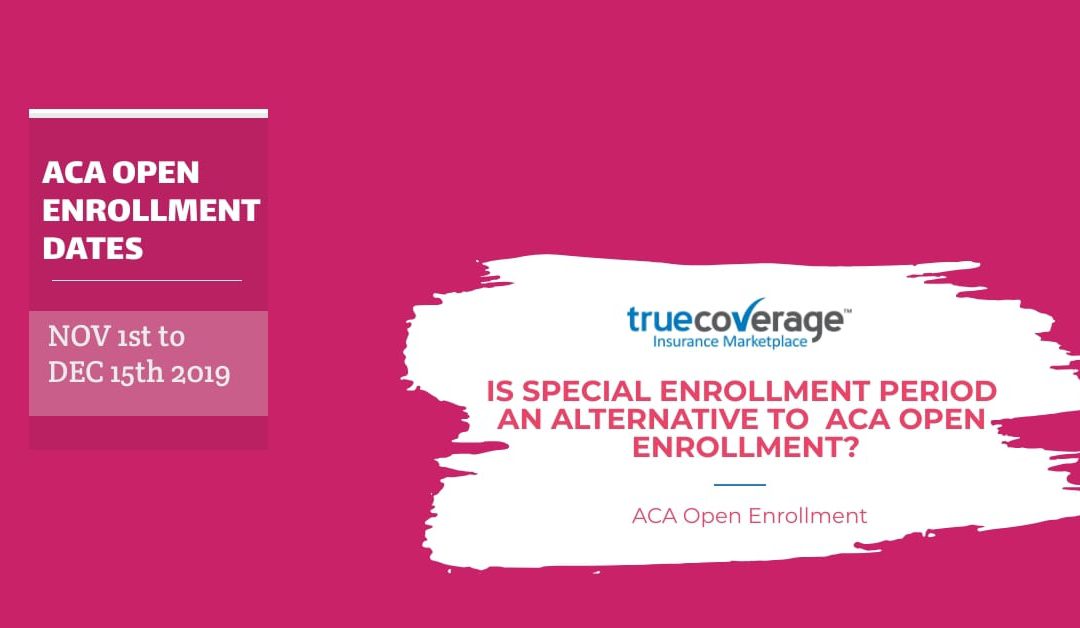ACA ‘open enrollment’ runs from 1st November to December 15th for Health Insurance coverage for the year commencing January 1st 2020. You can only buy ACA-compliant insurance plans during this window.
Read more about ACA open enrollment 2020
BUT there are some events which allow you to join, leave, add members or otherwise change your policy.
These events trigger a personal Special Enrollment Period (SEP). EXAMPLES ARE: –
- Marriage
- Birth or Adoption
- Eligibility for group scheme
- Eligibility for Medicaid
- Aging off (26)
- Aging off (65)
- Major change in income – Increase or decrease
- Change of location (State)
These are defined ‘lifetime events’ which ‘trigger’ a personal special enrollment period. This period is normally a 60-day window prior to the event and a 60-day window following the date of the ‘event’ itself. During this 120-period you may:
- change your plan
- enroll in a new plan (normally at the same metal tier)
- apply for the appropriate premium reliefs and subsidies.
You will need to provide proof of the qualifying event.
NOTE
Open enrollment (November 1st -December 15th) and Personal special enrollment periods (triggered by ‘lifetime’ events) apply only to ACA qualified policies i.e. they include minimum essential coverage, which you are legally obliged to have. Although there is currently no penalty for not having essential coverage, you should be aware that without it you will be entirely responsible for your own and your dependents’ hospital, medical and prescription charges.
In certain circumstances, e.g. change of employment, there may be a break in your coverage. In these cases, you may be well advised to set up short term cover. You should be aware that these policies are not regulated by the ACA and provide no coverage of pre-existing conditions.
Federal law allows for initial plans to run for up to 364 days and to have a limit (including renewals) of up to 36 months. Some states are more restrictive and, if the need arises, you should consult your State Exchange or a private exchange such as TrueCoverage for advice. You should be aware that short term policies require a medical assessment at each renewal. Although sometimes necessary, these plans should not be considered as a good substitute for an ACA-qualified plan. They do not qualify for premium tax relief nor do they contribute to your Medicaid funding.
If you are expecting a ‘qualifying event’ within the next 120 days (a birth for example) discuss the changes with your advisor when you are enrolling during the open window. It will be one less thing to worry about, and it may even save you money!

